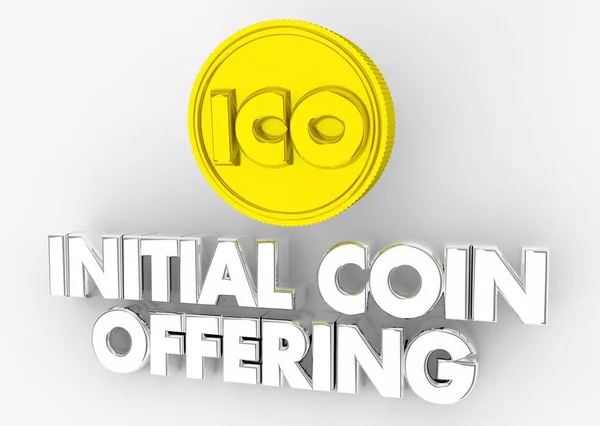Understanding ICOs: Key Insights for Savvy Investors
ICOs Explained: Your Essential Guide to Investment Opportunities
Understanding ICOs: What Investors Need to Know Today
Initial Coin Offerings (ICOs) are a form of fundraising that enables startups and cryptocurrency projects to raise capital via the sale of digital tokens. These tokens are often built on blockchain technology and can offer various utility or governance rights within a project’s ecosystem. Investors purchase these tokens intending to benefit from their price appreciation as the project develops and gains traction.
ICOs have emerged as an alternative to traditional funding methods like Initial Public Offerings (IPOs). However, unlike IPOs, ICOs do not involve shares in a company; instead, they typically provide tokens that may not offer ownership rights but can grant access to a platform or service. This distinction is crucial for potential investors to grasp, as it affects both the investment’s legal standing and its future value.
Potential investors should also be aware of the regulatory landscape surrounding ICOs, which varies significantly across different jurisdictions. While some countries have embraced ICOs, others have imposed strict regulations or outright bans. As such, understanding the local laws concerning ICOs is essential for anyone considering an investment in this space.
Lastly, the success and popularity of ICOs have led to a proliferation of projects, making it essential for investors to differentiate between credible opportunities and those that may be scams or poorly conceived ventures. Awareness of red flags and a solid investment strategy can significantly enhance the likelihood of making sound investment decisions in this fast-evolving market.
The Evolution of ICOs in the Digital Finance Landscape
The concept of ICOs emerged in the early 2010s, coinciding with the rise of cryptocurrencies like Bitcoin and Ethereum. Early ICOs were relatively informal, often functioning through simple websites and social media channels. However, the success of projects like Ethereum, which raised over $18 million in its 2014 ICO, demonstrated the potential for substantial capital raising through this model.
As ICOs gained popularity, they soon attracted a wave of new projects, leading to a burgeoning landscape filled with startups seeking to capitalize on the crypto boom. This rapid growth brought attention to the need for increased transparency, regulatory oversight, and investor protection, prompting discussions about best practices for conducting ICOs.
In response to the rising challenges, various platforms emerged to provide ICO ratings, due diligence, and advisory services. These intermediary platforms aimed to offer a level of trust and security to potential investors in the crowded marketplace. Some projects even began to adopt Security Token Offerings (STOs), which adhere to traditional securities regulations and offer more investor protection.
As the ICO model continues to evolve, there is a growing trend towards creating decentralized autonomous organizations (DAOs). DAOs leverage blockchain technology to manage funds and make governance decisions collectively, further transforming the landscape of fundraising. These developments indicate that ICOs are not merely a passing trend but are becoming an integral part of the digital finance ecosystem.
Key Advantages of Investing in Initial Coin Offerings
Investing in ICOs can offer several advantages that make them an attractive option for certain types of investors. One of the primary benefits is the potential for high returns. Early investors in successful ICOs have often seen their initial investments multiply dramatically as the projects gain popularity and market traction.
Another significant advantage is the accessibility of ICOs. Unlike traditional investments, which may require substantial capital or accreditation, ICOs often allow investors to participate with relatively small amounts of capital. This democratization of investment opportunities enables a broader range of individuals to engage in the burgeoning cryptocurrency market.
Additionally, investing in ICOs can provide early access to innovative projects and emerging technologies. Many ICOs focus on groundbreaking ideas, such as decentralized finance (DeFi), non-fungible tokens (NFTs), and blockchain applications across various industries. By investing in these projects at their inception, investors have the chance to support and be part of transformative technologies.
Lastly, ICOs often promote community engagement and participation. Token holders may have voting rights or other forms of input into the project’s future direction. This sense of involvement can enhance the overall investment experience, making it not just about financial returns but also about contributing to a vision and community.
Risks and Challenges: Navigating the ICO Investment Terrain
Despite the potential benefits, investing in ICOs is fraught with risks and challenges. One of the most significant concerns is the prevalence of scams and fraudulent projects within the ICO space. The lack of regulation has made it relatively easy for malicious actors to launch deceptive ICOs, leading to substantial financial losses for unsuspecting investors.
Another critical risk is the volatility associated with cryptocurrencies and tokens. The market is notorious for its price fluctuations, with tokens often experiencing substantial gains or losses within short time frames. This volatility can make it challenging for investors to gauge the true value of their investments and may deter those with a low risk tolerance.
Additionally, the regulatory environment surrounding ICOs remains uncertain in many jurisdictions. Changes in regulations can significantly impact the viability of a project, and unexpected legal challenges may lead to financial losses for investors. As governments worldwide continue to navigate the complexities of blockchain technology and digital currencies, investors must stay informed about potential regulatory shifts.
Lastly, many ICOs rely on the execution of a white paper, a document outlining the project’s goals, technology, and roadmap. However, the ambitious nature of these projects can lead to delays or failures in delivering on promises, which may erode investor confidence and lead to declining token values. Investors must thoroughly assess the feasibility of a project’s objectives before committing funds.
How to Conduct Thorough Research Before Investing in ICOs
Before investing in any ICO, conducting thorough research is essential. The first step in this process is to scrutinize the project’s white paper. This document should provide clear information about the technology, market potential, use cases, and the team’s qualifications. A well-drafted white paper can reveal the project’s legitimacy and its potential for success.
Next, investors should evaluate the team behind the ICO. Investigating the background and experience of team members can provide insights into their capabilities and track record in the cryptocurrency space. A team with a history of successful projects and relevant expertise is often a positive indicator of a project’s potential success.
Another critical aspect is assessing the community surrounding the ICO. Engaging with community members on platforms like Telegram, Discord, or Reddit can offer valuable perspectives on the project. A strong and active community often indicates genuine interest and support for the project, which can contribute to its success.
Lastly, monitoring the project’s roadmap and milestones can help investors gauge its progress and future viability. Clear timelines, achievable goals, and regular updates can demonstrate the team’s commitment to the project. By staying informed and vigilant, investors can make more educated decisions about their ICO investments.

The Future of ICOs: Trends and Predictions for Investors
As the digital finance landscape continues to evolve, the future of ICOs appears to be shaped by several emerging trends. One significant trend is the increasing focus on regulatory compliance. As governments worldwide begin to impose stricter regulations, projects that adhere to legal frameworks may gain a competitive advantage, fostering greater trust among investors.
Moreover, the rise of decentralized finance (DeFi) is expected to influence the ICO landscape significantly. Many new projects are leveraging DeFi principles to offer innovative financial services and products. This trend may open new avenues for investors, expanding the types of opportunities available within the ICO space.
Another trend to watch is the potential integration of environmental, social, and governance (ESG) factors into ICO projects. As more investors prioritize sustainability and ethical considerations, ICOs that align with these values may attract increased interest. Projects focusing on social impact and environmental responsibility could emerge as frontrunners in the evolving market.
Lastly, advances in technology, including interoperability between different blockchains, may pave the way for new models of fundraising and token economics. As projects become more interconnected, the ICO landscape may witness the emergence of hybrid fundraising mechanisms that combine aspects of ICOs, STOs, and other models. Investors should stay informed about these developments, as they could reshape the investment landscape in profound ways.
| Aspect | ICOs | IPOs |
|---|---|---|
| Ownership Rights | Typically no ownership rights | Shares of the company |
| Regulation | Less regulated | Highly regulated |
| Investor Access | Open to all investors | Generally requires accreditation |
| Investment Risks | High risk of scams and volatility | Stable but can involve market risks |
| Community Engagement | High (token holders may vote) | Limited (shareholder rights) |
In conclusion, while ICOs present unique investment opportunities, potential investors must approach this market with caution and diligence. Understanding the ecosystem, conducting thorough research, and being aware of the risks will equip investors to navigate the exciting yet complex world of ICOs.










The idea of investing with small amounts is good, but is it safe?
Seems like ICOs are more about gambling than investing.
I don’t get why ICOs don’t offer ownership rights like IPOs.
Early access to innovative projects is good, but how do we spot scams?
The potential high returns are tempting, but is it worth the risk?
Regulation uncertainty makes me nervous about ICOs.
How do DAOs improve the ICO model? Is it safer?
ICOs sound risky. Too many scams out there in crypto.
If the market is so volatile, why should we invest in ICOs?